The Spark of Life Model of Care Providing Best Practice
Best Practice Dementia Care In the Commonwealth
By Jane Verity, Founder, Dementia Care International and Hilary Lee, President, Dementia Care International
18th January, 2024
Dementia as a Public Health Priority
The impact of dementia is not only significant in financial terms, but also represents substantial human costs to countries, societies, families, and individuals (1) In 2015, dementia affected 47 million people worldwide (or roughly 5% of the world’s elderly population), a figure that is predicted to increase to 75 million in 2030 and 132 million by 2050 (2).
WHO and the World Bank estimate a need by 2030 for 40 million new health and social care jobs globally and about 18 million additional health workers, primarily in low-resource settings, in order to attain high and effective coverage with the broad range of necessary health services.(3) Given the range of the population affected directly or indirectly by dementia and the complexity of this condition, dementia requires a whole-of-government, broad, multistakeholder, public health approach (4).
The WHO Global Action Plan has called for the development of a pathway of efficient, coordinated care for people with dementia that is embedded in the health and social care system (including long-term care), to provide integrated, person-centred care (5).
The Spark of Life Model of Care
The Spark of Life Model of Care, currently implemented on 5 continents offers governments and international healthcare providers in the Commonwealth countries, a cost-effective best practice resource to address the above-described challenges in dementia care and solve the key issues. In particular, the Model equips leaders in diverse dementia services and cultures with ‘evidence based, culturally appropriate and human rights-orientated’ (6) education that they can deliver to their teams so they can provide integrated person-centred care.
 CommonAge Emertius Chairman Andrew Larpent says: “The Spark of Life Model of Care provides a best practice transferable framework of education and care practices that are meaningful and effective in diverse cultures and in all areas of care including community and palliative care.”
CommonAge Emertius Chairman Andrew Larpent says: “The Spark of Life Model of Care provides a best practice transferable framework of education and care practices that are meaningful and effective in diverse cultures and in all areas of care including community and palliative care.”
The Model is sustained through having healthcare leaders in each service educated and certified as Master Practitioners. These leaders are provided with specialised dementia education that can not only be used to educate their staff but also the wider community.
Founded in 1993, Dementia Care International is the independent organisation behind The Spark of Life Model of Care. This Model has the strength of both scientific and humanistic theoretical foundations and is grounded in clinical practice. It has proven to be effortlessly embraced by people of all cultural backgrounds.
The focus of the Model is on the quality of the connection between the carer and the person with dementia, building competencies in the psychological and emotional aspects of care. The Model facilitates a fundamental shift from being emotionally disengaged to being emotionally engaged creating the foundation for an equal and respectful relationship that humanises the experience of dementia.
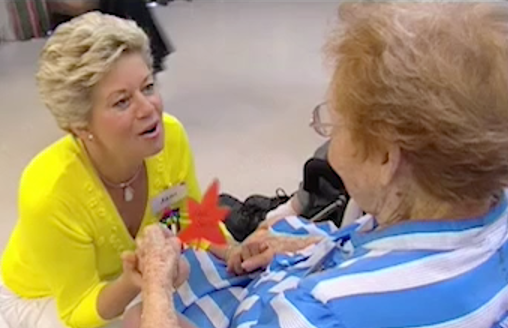
The Spark of Life Model of Care has been developed meticulously according to best practice protocols and meets WHO definition for a best practice Model – “a technique or method that, through experience and research, has proven to reliably lead to the desired result”(7).
The development of the Model commenced in 2007, incorporating detailed research insights (8), (9) and a quality management system specifically designed for dementia care. Over the next 14 years the model was field tested on 5 continents, further developed, and is now an internationally awarded best practice Model of Care.
As part of the Model development, Mr. Mark Pearson, Deputy Director of Employment, Labour, and Social Affairs at OECD, Paris was consulted for his recommendations on the most pressing issues to address in aged and dementia care for the future. The clear directive was to overcome the workforce challenge of staff recruitment and retention. This recommendation now forms a cornerstone of the Model ensuring a strong focus on nurturing staff and improving their emotional health.
Transforming Lives Across the Commonwealth
In 2015, a meeting was held between the CommonAge Ambassadors and Dementia Care International, at a global aged care conference in Perth, Australia. From the discussions it became apparent that resources and specialised education were urgently needed to support the CommonAge Ambassadors to deliver quality care for people with dementia, and it was identified that the Spark of Life Model of Care could offer a practical solution.
Through Dementia Foundation for Spark of Life, (Dementia Care International’s charity arm), grants have since been provided for CommonAge Ambassadors from 5 countries to attend the certified three-week Master Leadership Program, that certifies them to implement the Model in their individual services and regions. Furthermore, ongoing leadership support and mentoring has been provided on a personal basis to each Master Practitioner.
As certified Master Practitioners these Commonwealth Healthcare Leaders have been pioneering the Spark of Life Model of Care in each of their countries with remarkable results as illustrated below.
Currently, the Spark of Life Model of Care is being implemented in 8 Commonwealth countries: New Zealand, Uganda, Zambia, Nigeria, Kenya, India, Singapore, and Australia.
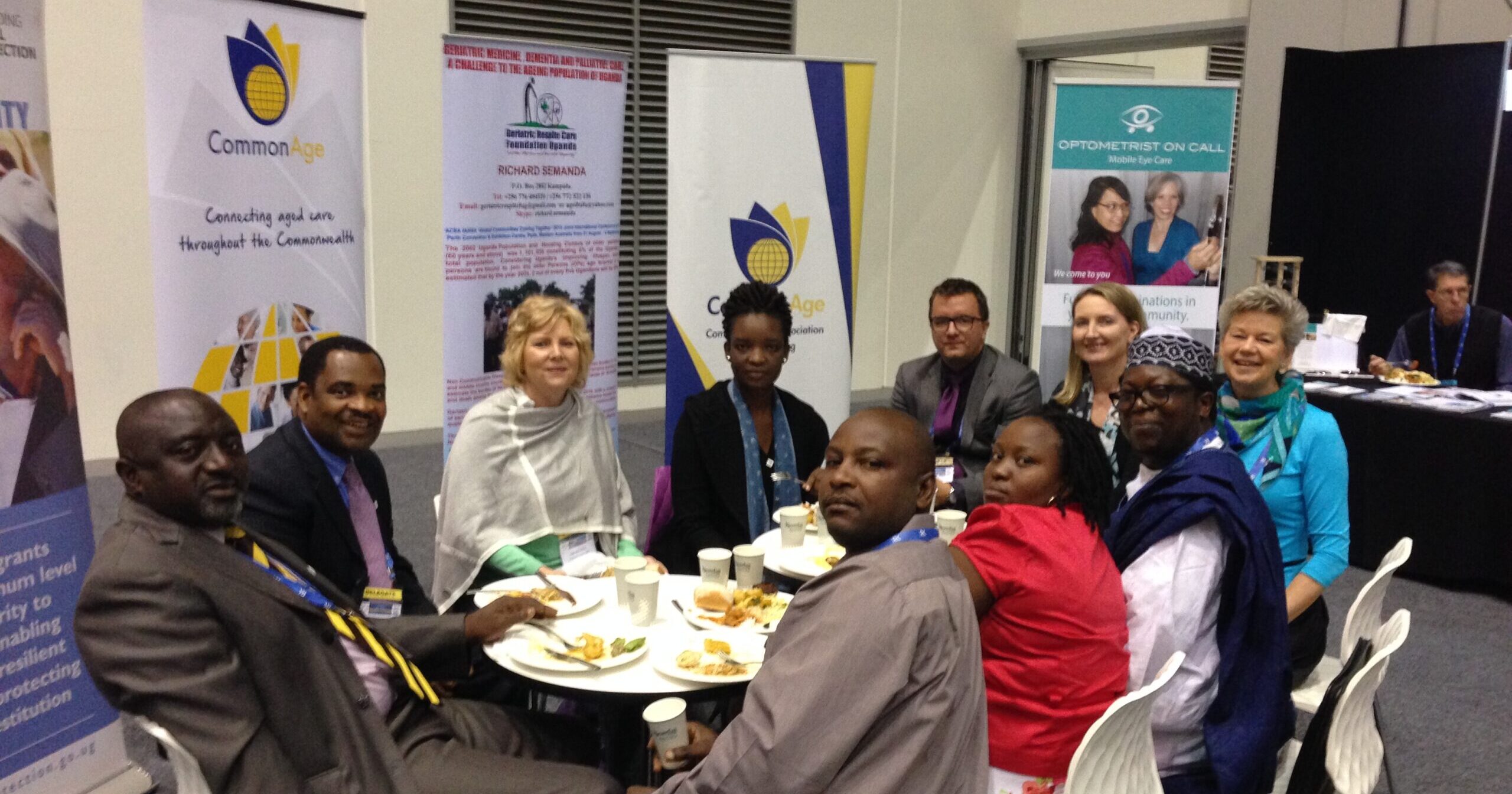
New Zealand
New Zealand was the first country to introduce the Spark of Life Model of Care in 2007 (10). Since then, the Model has been field-tested around this country and been commended as best practice by auditors in their reviews of 3 Spark of Life Centres of Excellence, in both the North and South Islands. Importantly, the indigenous Māori people have also wholeheartedly embraced this best practice Model that has proven to be of the greatest benefit for them as it resonates with their indigenous culture and provides support for the individual, their family, and community.
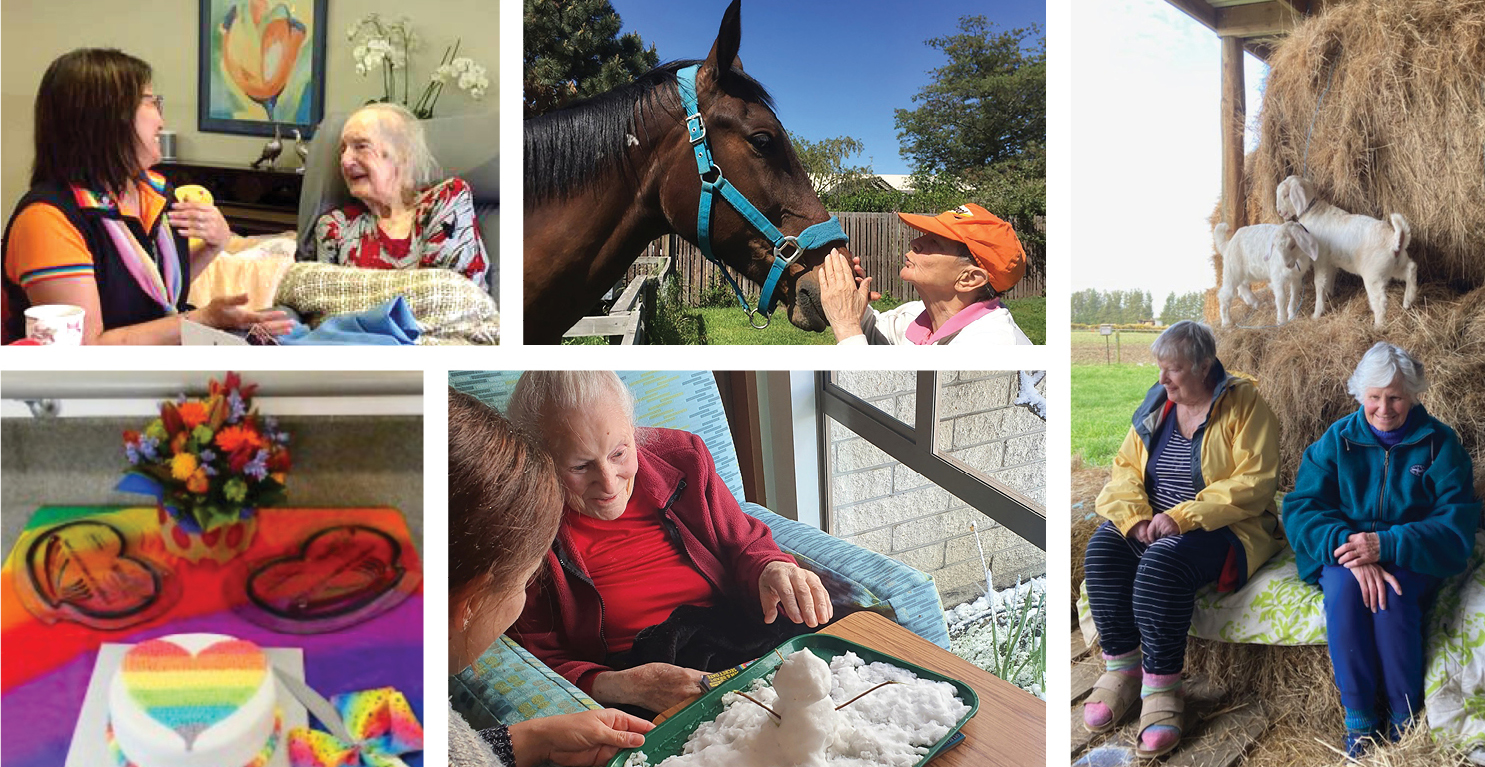
Mischeal McCormick, Spark of Life Master Practitioner and owner of 2 dementia specific Spark of Life Centres of Excellences, Adriel House and Adriel Resthome, has been implementing the model since 2012.
In April 2014, Adriel received its first Continuous Improvement (a New Zealand standard that represents exceptional outcomes) by independent Auditors for using the Spark of Life Model of Care and being able to evidence a reduction in behaviors of concern and depression. Again, in April 2017 and 2021, when re-audited, Adriel was commended with a further number of Continuous Improvements for the implementation of Spark of Life within Adriel and their surrounding community.
In recognition of these outstanding achievements, Ms. McCormick has been invited to speak at the Institute of Internal Auditors’ national conference on the results experienced at her service.
In 2019, when the community was invited to the celebration of both dementia specific homes becoming certified Spark of Life Centres of Excellence, Ms. McCormick received many comments from visitors that they could not believe that everyone living at Adriel had dementia.
Ms. McCormick describes the uplifting impact the model has had on her staff and the organizational culture: “Staff are now empowered and their self-esteem and confidence in their job has improved. They find that they can put into practice what they have learned to benefit their everyday work and personal lives. Their communication with residents is enhanced and they experience immediate positive feedback from the residents.”
Ms. McCormick further explains: “Our homes are now attracting staff who genuinely care. Once you have staff that understand and practice the Spark of Life Model of Care, they feel a sense of achievement and a heightened job satisfaction which are facilitating a happier working environment. Staff now tell me they look forward to coming to work. That is always wonderful and encouraging for an owner to hear, especially when the comments are not related to wages or money but to the good experience that the staff have.”
Uganda
Uganda was the first country in Africa to implement the Spark of Life Model of Care and in Kampala, Mr. Richard Semanda (Founder of Geriatric Respite Care Foundation) and Ms. Jesca Nakibirango (Founder of Rise and Shine Dyslexic Association) started the first African Spark of Life Day Centre.
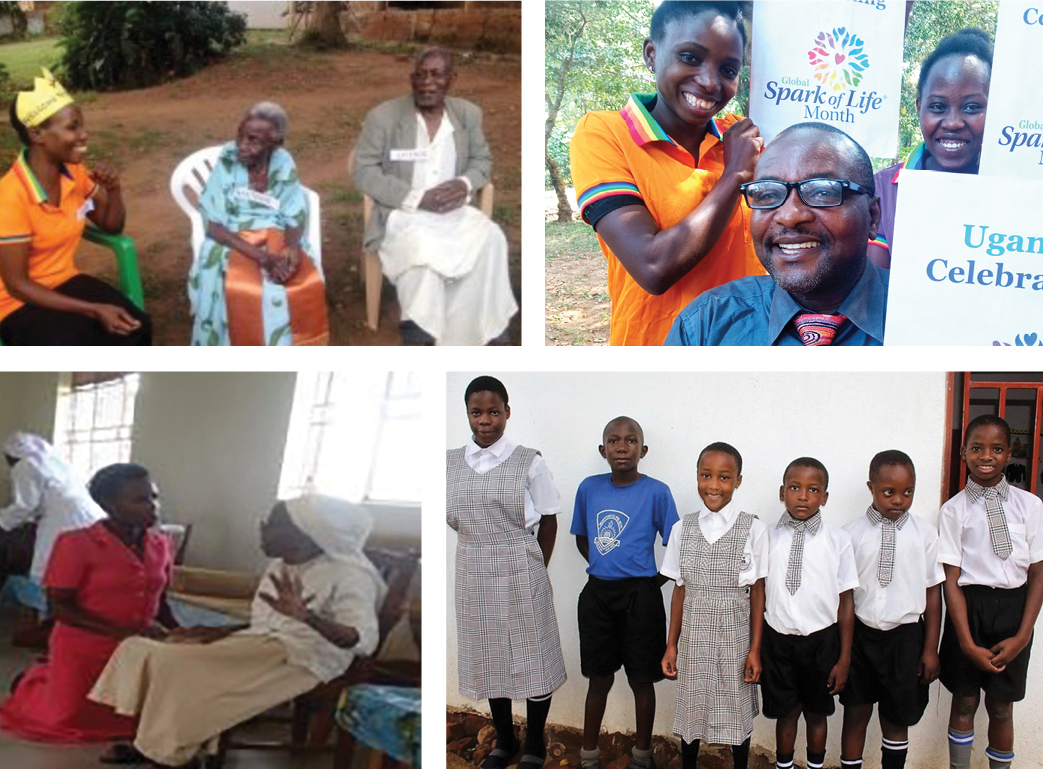 Since graduating as Spark of Life Master Practitioners in October 2015, Mr. Semanda and Ms. Nakibirango have been pioneering the Spark of Life Model of Care in Uganda with their specialized knowledge and skills. They have educated families, communities, and health professionals on how to support people with dementia including setting up a Spark of Life Community Outreach Program for 300 nuns living at Nkokonjeru Convent. The nuns with dementia who had formerly been locked up in isolation are now involved in their community with compassionate care, and meaningful connections with the other nuns.
Since graduating as Spark of Life Master Practitioners in October 2015, Mr. Semanda and Ms. Nakibirango have been pioneering the Spark of Life Model of Care in Uganda with their specialized knowledge and skills. They have educated families, communities, and health professionals on how to support people with dementia including setting up a Spark of Life Community Outreach Program for 300 nuns living at Nkokonjeru Convent. The nuns with dementia who had formerly been locked up in isolation are now involved in their community with compassionate care, and meaningful connections with the other nuns.
Mr. Semanda and Ms. Nakibirango consider that the Spark of Life Model of Care: “Is the best practice solution to support rural and remote African communities of people with dementia.” They recommend Commonwealth Governments to sponsor the Spark of Life Education of many dementia leaders, especially those from Africa where dementia information is scarce, and where many still regard dementias as a Western challenge.
Zambia
Mr. Anderson Simfukwe, Founder of Alzheimer’s and Related Disorders in Zambia (ADDIZ) is the first Spark of Life Master Practitioner in Zambia along with colleague Ms. Mary Mutambo.
By field testing the Spark of Life Model of Care since 2016, ADDIZ has found the model to be: “sustainable, humanistic and cost effective.” The philosophical ingredients of the Model align well with our Zambian jurisdiction and cultural background, Mr. Simfukwe states.
“The Spark of Life Model of Care is the premium service offered at the Centre and is the only model that is giving hope to people living with dementia in Zambia. ADDIZ utilises the Spark of Life Model of Care as a one stop border post service where people from different nationalities, backgrounds and diversities can cross to therapeutical healing and safety”, Mr. Simfukwe explains.
“Using the Spark of Life Model of Care, there has been positive impact in the Nakonde district hospital, schools, and prisons as well as at the Centre and we have experienced an increase in the number of people visiting our Centre for case management”, Mr. Simfukwe says.
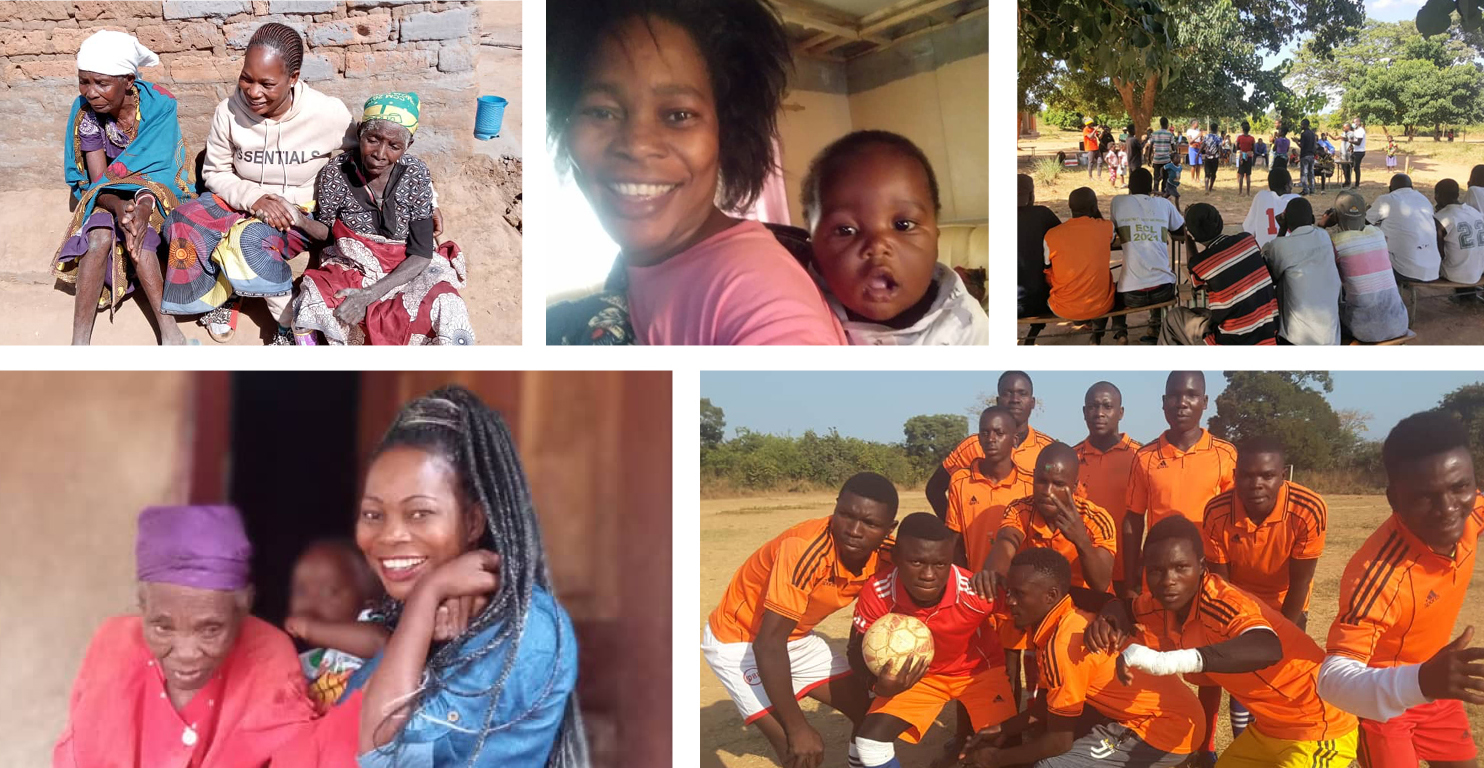
In the African context, there are additional challenges. There is an intersection of old age and witchcraft. Dementia is at the centre of such witchcraft and people with dementia are subjected to accusations of practicing witchcraft that then leads to all forms of abuse. “ADDIZ highly recommends the Spark of Life Model of Care for sensitization and awareness in the community. Through Spark of Life Community Education witchcraft accusations have diminished, delivering unprecedented benefits for all involved and is saving lives, Mr. Simfukwe reports.
Nigeria
Ms. Aina Scott, is Spark of Life Master Practitioner and Founder of the HebronLove six Day Centres for the elderly located in Lagos and Ibadan and Ibadan’s first aged specific residential care home.
‘Since adopting the best practice Spark of Life Model of Care in 2016, our service has evolved into a multi-dimensional organization, offering a range of services aimed at holistic well-being. Our initiatives include emotional support, psychological counseling sessions, and medical assistance via regular medical outreach. We prioritize emotional well-being through daily interactions based on the Spark of Life Principles. We also provide Spark of Life Education to carers to ensure excellence in the way care is provided.
Through implementing the Model our team has learned to recognize the inherent dignity and emotional needs of each individual. By fostering empathetic interactions between carers and residents, we create a nurturing environment where residents feel loved, valued, and empowered.
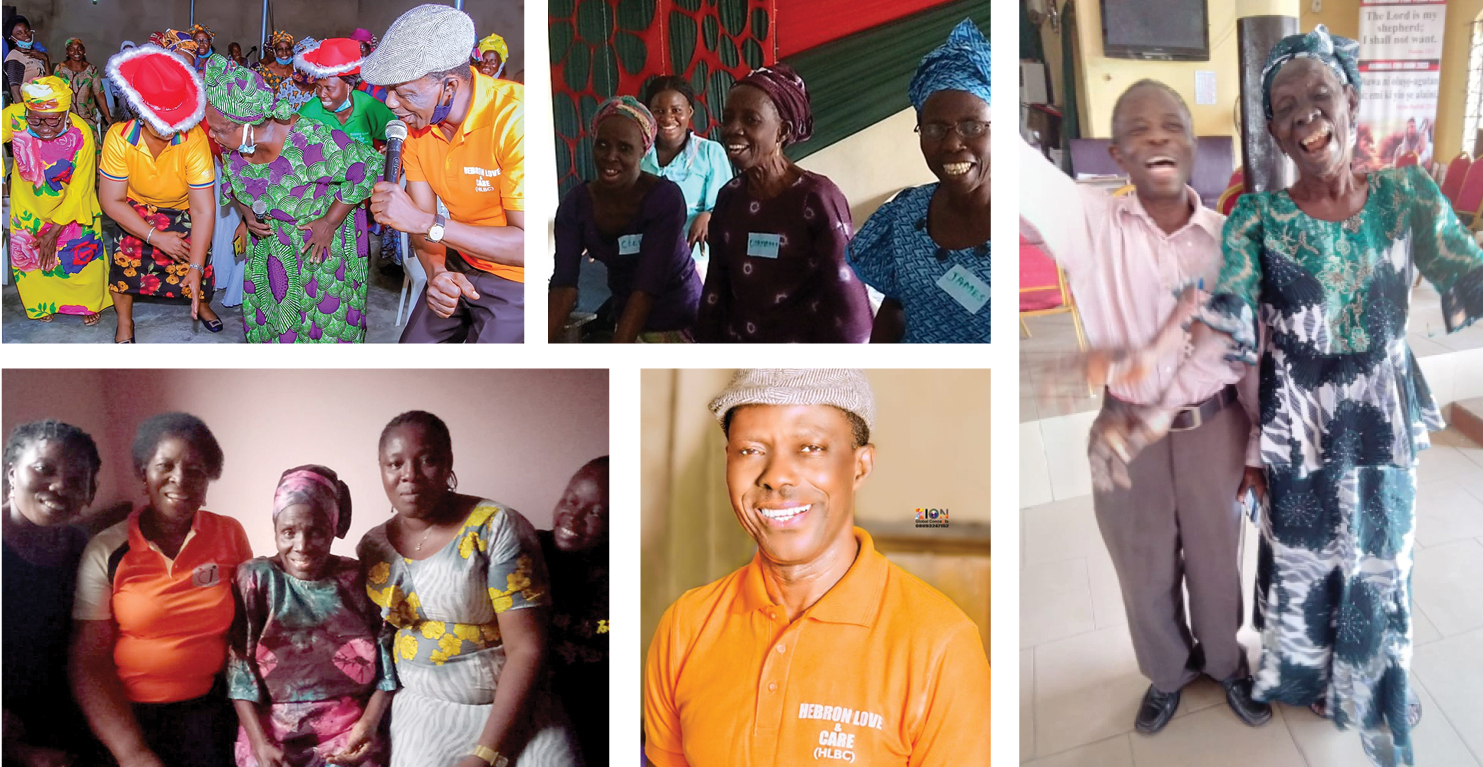
Our practice has shown remarkable results, with some residents experiencing “rementia” – the recovery of lost abilities when the social and emotional environment becomes more supportive and understanding. In addition, the Spark of Life Education has given us a solution to emotional distress and behaviours of concern.
We advocate for a collaborative approach where the Spark of Life Model of Care is integrated into the broader healthcare system. By addressing the emotional needs of individuals, we have observed that this enhances the effectiveness of medical interventions and improves overall well-being in people with dementia’ Ms. Scott explains.
Kenya
In Nairobi, Mr. James Mbatia Kinuthia is Founder of Sir James Care Homes for the Aged which also serves as a dementia rescue centre. Since 2021 as a Spark of Life Master Practitioner, Mr. Mbatia Kinuthia has implemented the Spark of Life Model of Care throughout his service and the wider community which has reduced cases of labelling, abuse and neglect and given rehabilitation opportunities.
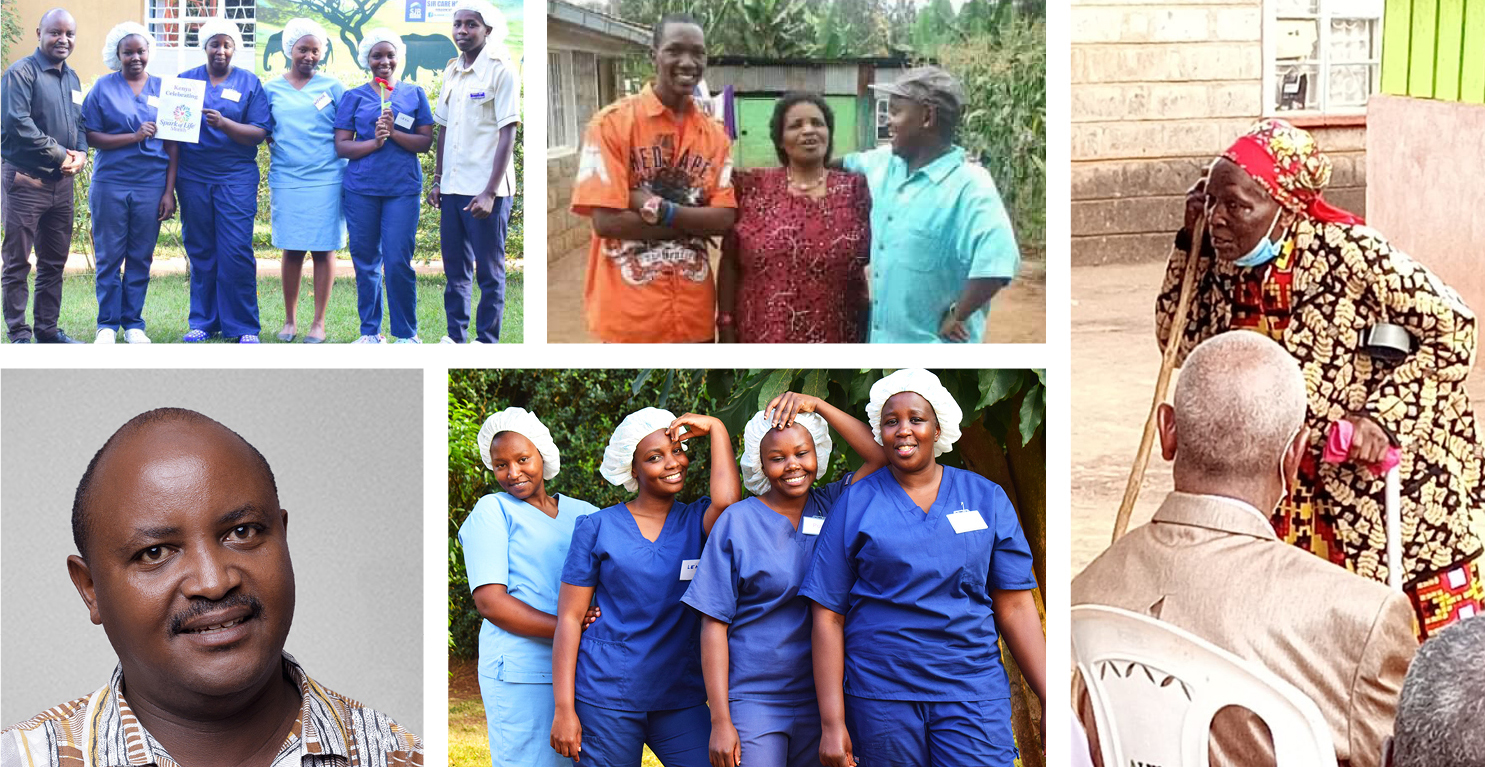
Mr. Mbatia Kinuthia explains: “We have created much needed awareness, and a consultation platform such that more people can now call and talk freely about the challenges that they are facing. The education makes it easier for the staff to connect and communicate meaningfully with the residents and clients, and it has boosted their confidence and enjoyment at working in dementia care”.
“Sir James Care Homes utilizes the Model to reduce stigma and abuse around dementia by providing Spark of Life Education to the surrounding communities. People learn that having dementia is not witchcraft, but instead is a medical condition that can have many causes and needs proper care. This knowledge and awareness is now saving lives in Kenya. Furthermore, this community education has enlightened other sectors about dementia care, and is helping to reduce, for instance financial abuse and other forms of abuse”, Mr. Mbatia Kinuthia says.
Mr. Mbatia Kinuthia recommends to the Commonwealth Governments and stakeholders to make funding available for healthcare services in their countries to access the Spark of Life Model of Care, as this enables services to solve many key issues in dementia care. It is cost-effective, can be replicated in diverse services and cultures, and is a practical best practice Model that fits with the African culture.
India
In India, with the world’s largest population of 1.43 billion, the Spark of Life Model of Care is implemented in diverse services through 3 inspirational Commonwealth healthcare leaders.
Kolkata, West Bengal
Since 2017, Ms. Nilanjana Maulik, Spark of Life Master Practitioner and Secretary of Alzheimer’s and Related Disorders Society of India, Calcutta Chapter has been forging new ground with the Spark of Life Model of Care in her region.

Ms. Maulik says: “My team and I have been implementing this universally applicable dementia specific Model of Care in our service where people are living with dementia. We cover the eastern region of our country from the major cities to grassroot villages where we educate families and professionals and discuss the Spark of Life Philosophy during awareness building campaigns.”
“The most effective aspect of the Model is that it has an essential focus on humanizing dementia care. This very fact touches people across the region and hence the impact is profound. Also, during education sessions, the promise that the knowledge and skills are not just to support people with dementia in the early and moderate stages but also for those in the advanced stage, gives immense hope to those in the caring roles”, Ms. Maulik explains.
Mumbai, Maharashtra
Mr. Sailesh Mishra, is a Spark of Life Master Practitioner and Founder of Silver Innings Group which includes the A1Snehanjali home. Since 2017, Mr.Mishra has been implementing the Spark of Life Model of Care in the western region in his Residential Care and Outreach Services.
Mr. Mishra has found that: “The Model has made us reconnect with the human values of understanding and empathy, not only with our residents with dementia, but also with our staff and families. We have found that the Spark of Life Model of Care can be adopted successfully into our rich culture and to our care facilities. The model aligns with our Asian and Indian sub-continent values, where we talk about family, community, and a human approach in everything we do.

Spark of Life Model of Care benefits healthcare services, people with dementia, their families, and the community in India. It provides a comprehensive toolkit to find effective solutions to various dimensions of age and dementia care, thus offering timely support to governments to address the urgent issue of rapid growing numbers of people with dementia.
Mr. Mishra recommends that the government provides funding to healthcare services to access this best practice Model. This would not only benefit outreach dementia awareness and education to empower the community affected by dementia. It would also improve lives for people living and working in residential care, as well as reduce the financial and non-financial impact of dementia care.
Mumbai, Maharashtra
Ms. Clara D’Souza is the Operations Manager of Adhata Trust aged care and Spark of Life Master Practitioner. Her services cover Day Centres, Community Care and Residential Care.
Adhata Trust is a private social enterprise and there are no contributions from the members (clients with dementia). The members registered at the 14 centres are from different class and castes. Irrespective of their cultural background, they come together to participate as a group of individuals with the need for love and affection to counteract mental health issues due to loneliness.
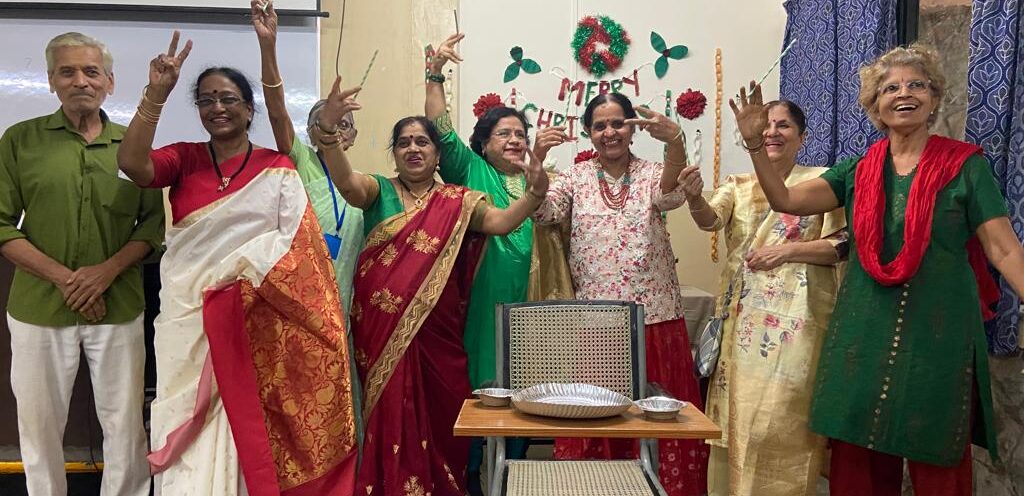 ‘Introducing the Spark of Life Model of Care has enabled us to practice this ideology for moving from society’s perception of disability to ability. Every member of Adhata Trust now works towards adding quality of life to the lives of the elderly by providing love, compassion, and care.
‘Introducing the Spark of Life Model of Care has enabled us to practice this ideology for moving from society’s perception of disability to ability. Every member of Adhata Trust now works towards adding quality of life to the lives of the elderly by providing love, compassion, and care.
Ms. D’Souza explains: “I have learned that as a Spark of Life Master Practitioner, I am the catalyst of inspiration for the team to go beyond the status quo and awaken a desire to bring positive change and facilitate a new future for dementia care.
Our members with dementia who are coming to all of our 14 centres are now welcomed with a smile, and a personal greeting. The coordinators who have been educated in the Spark of Life Model of Care, experience the joy of being with the elderly and feel confident with their new skills to connect with them. For the elderly it is an unconditional bond of love and belongingness, and it is a boost to their satisfaction and morale for all.
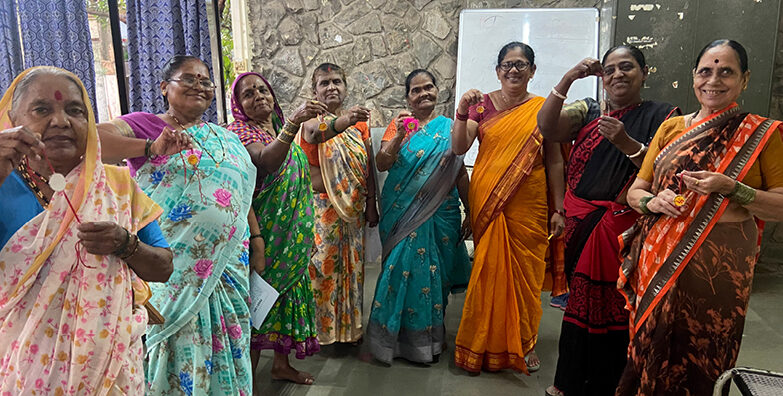
Ms. D’Souza calls on Commonwealth Governments to fund skilled ambassadors of change that are urgently needed to bring in the Spark of Life Model of Care. “Such advocacy is important to increase awareness in the political sphere to build an inclusive society where people with dementia have an enhanced quality of life, Ms. D’Souza says.
Singapore
Over the last three decades Spark of Life Education has brought new insights and specialized dementia skills to the healthcare workforce in Singapore. Through consultation to the Ministry, conference presentations, and large education forums that have also attracted healthcare leaders from the medical profession, competencies in the psychosocial care of people with dementia have been elevated.

Since September 2011, 14 Singaporeans have been certified as Spark of Life Master Practitioners. They have been implementing various parts of the best practice Model in residential-, community- and palliative care as well as in hospital- and day centre settings.
Ms. Nur Sahara Kamsani, Spark of Life Master Practitioner and medical social worker at RenCi Community Hospital reports: “We have witnessed firsthand possibilities beyond imagination with our Spark of Life Rehabilitative Program where all members have advanced dementia. We have been able to observe their improvements, joining in outings after a long-time being bed-ridden. The Spark of Life Model of Care is not only enriching the emotional health of the clients but also of the care staff.
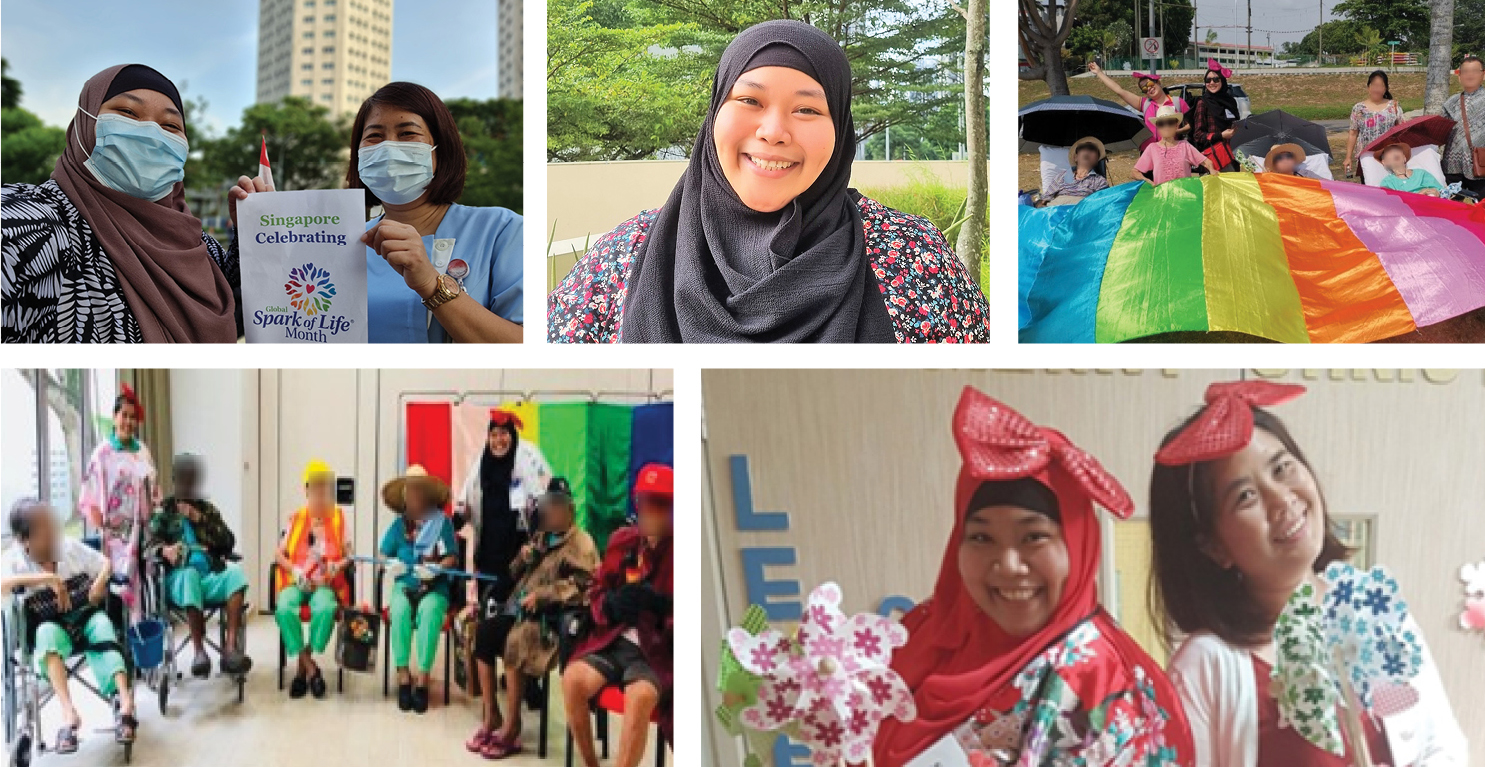
Australia
In Australia, the Spark of Life Model of Care is implemented through Master Practitioners working within an individual service or region as well as through tailored education spanning health care services in every state and territory. The education is now elevating care practices for staff working in residential, community, and palliative care, as well as hospital, and mental health settings.
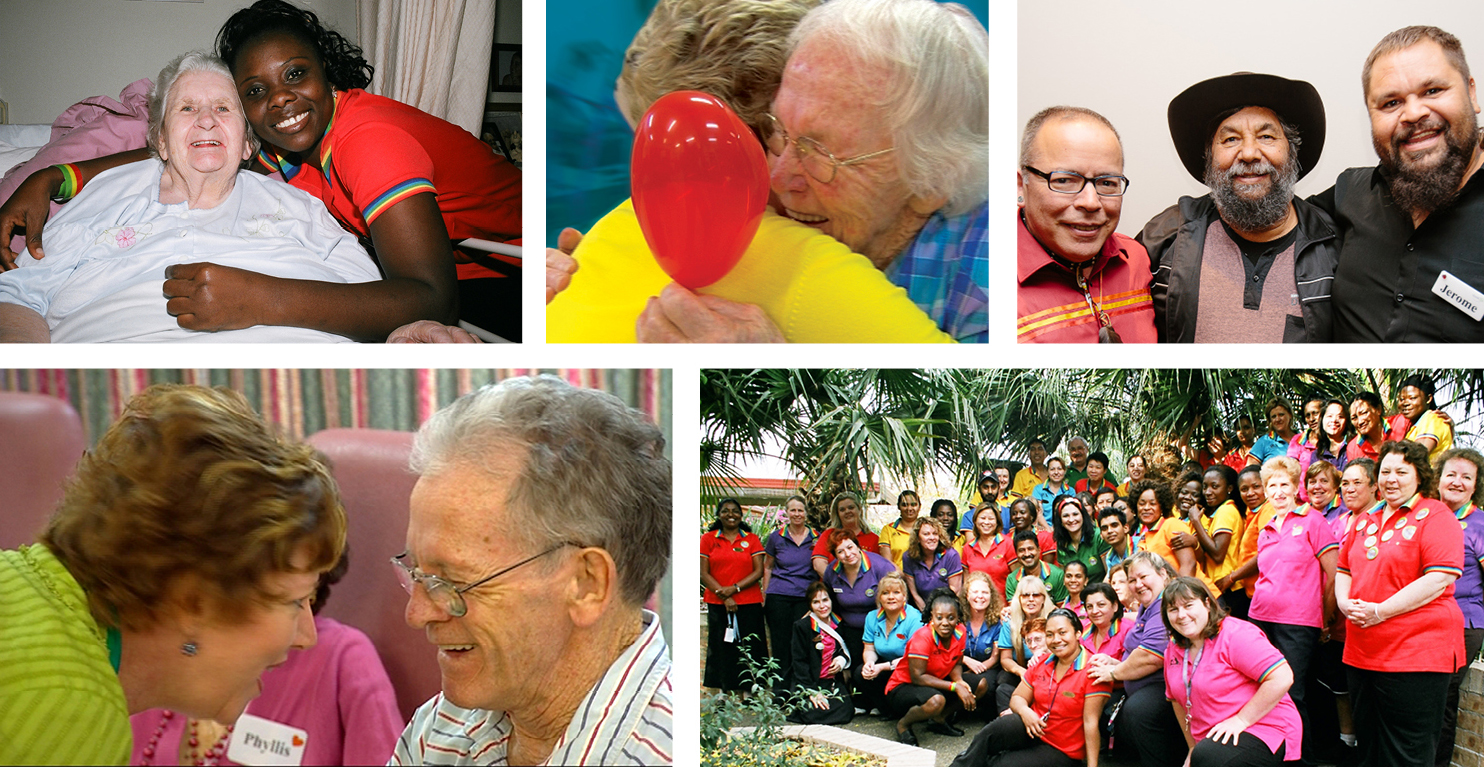
For Aboriginal people living anywhere in Australia the Spark of Life Model of Care has proven to be aligned with their indigenous culture. It has provided healing of past traumas; enriched connections and facilitated inclusion and acceptance.
Anthony Ryan, Master Practitioner and Nursing Divisional Director Older Persons, Eyre and Far North health region, South Australia, was the first to bring the Spark of Life Model of Care to the region in 2015.
From his 9 years of implementation experience, Mr. Ryan reports, “With the best practice Spark of Life Model of Care people can successfully shift from caring with their minds to also caring with their hearts (which is required in dementia care), moving from a task orientated organisation to a person orientated organisation, and being able and empowered to shift their focus to the perspective and emotional needs of the individuals they are caring for. The model assists all involved in successfully implementing the required paradigm shift needed to provide quality dementia care throughout an entire organisation”.
Trudy Wadsworth, Nurse Unit Manager, has implemented the Spark of Life Model of Care within her Multi-Purpose Service consisting of acute hospital, residential aged and specific dementia care since 2017. Her service has reached a reputation within the entire region for the ability to care for people with dementia with extra special needs. Residents are now coming from a catchment area of several 100 kms away to access this specialised and compassionate service.
Summary of Outcomes from Commonwealth Healthcare Leaders
From their experiences implementing the Spark of Life Model of Care in diverse cultures, Commonwealth healthcare leaders are demonstrating that the Model is best practice in each of their country.
Below is a summary of their collective outcomes in relevant categories highlighting:
For Residents, Clients, and Patients
- Specific improvements in mental abilities, language, self-esteem, social interactions, and emotional well-being.
- Elevated ability to participate in daily activities in ways that were thought to be lost due to dementia.
- Prevention of behaviors of concern, eliminating the need for psychotropic medications.
- Reduction in depression and falls.
For Staff
- Enhanced teamwork leading to elevated job satisfaction where staff are empowered, and their self-esteem and confidence improved.
- New skills to facilitate effective communication with residents, clients and patients preventing the mental stress of potentially angry and aggressive responses from those in their care.
- Profound attitudinal shift regarding dementia from being task-oriented to being person-oriented leading to enriched care experiences.
- Uplifting impact with happier workplaces and staff looking forward to coming to work.
For the Healthcare Services
- The development of vibrant and values-based places to work and learn.
- Increased retention and recruitment of staff who genuinely care.
- Becoming preferred employers and providers resulting in operation at full capacity with no vacancies.
- Excellence in audits, in countries where accreditation is in place.
The community
- Reduced stigma and fear around dementia through community education that creates awareness and new understanding about dementia.
- Families having improved relationships and gained skills to care longer for people with dementia at home.
- A broader application for people with dementia in mental health services, prisons and for those suffering trauma.
- In Africa, diminished witchcraft accusations of people with dementia diminishing and lives being saved.
Recommendations
The Spark of Life Model of Care provides a cost-effective transferable framework of education and humanizing care practices that are meaningful and having a life changing impact in diverse cultures and in all areas of care including residential, community, hospital, and palliative care.
On this basis, Dementia Care International recommends:
- For Health Care Services Globally, to include the Spark of Life Model of Care in their Dementia Action Plan to provide a best practice, evidence-based pathway to achieve integrated and culturally appropriate person-centered care in dementia.
- For Commonwealth Governments to ensure that appropriate funds are available for Health Care Services to implement the best practice Spark of Life Model of Care.
- For Policy Makers in each Commonwealth country to include the Spark of Life Model of Care in policies as an important tool to meet the recommendations for dementia care as outlined in the WHO Global Action Plan on the Public Health Response to Dementia.
References:
- WHO (2017). Global Action Plan on the Public Health Response to Dementia 2017-2025, Foreword.
- WHO (2017). Global Action Plan on the Public Health Response to Dementia 2017-2025, p2, point2.
- WHO (2017). Global Action Plan on the Public Health Response to Dementia 2017-2025, p2, point7.
- WHO (2017). Global Action Plan on the Public Health Response to Dementia 2017-2025, p10. Point 16.
- WHO (2017). Global Action Plan on the Public Health Response to Dementia 2017-2025, p22, Point 61.
- WHO (2017). Global Action Plan on the Public Health Response to Dementia 2017-2025, p22 Point 62.
- WHO Africa (2008). A Guide for Documenting and Sharing ‘Best Practices’ in Health Programs, p2.
- Lee, H. (2007). Master’s in Science (Research). Thesis: The impact of the Spark of Life Program on the personal and emotional well-being of people with dementia: carers’ and families’ perceptions. Curtin University of Technology, Perth, Western Australia.
- Verity, J. and Lee, H. (2011). Reigniting the Human Spirit. Chapter 1, in Creative Approaches in Dementia Care, Palgrave MacMillan UK.
- Delmonte, H. (2016). Igniting the Spark of Life. Journal of Dementia Care. Vol 5, no 2, pp 27-29.
